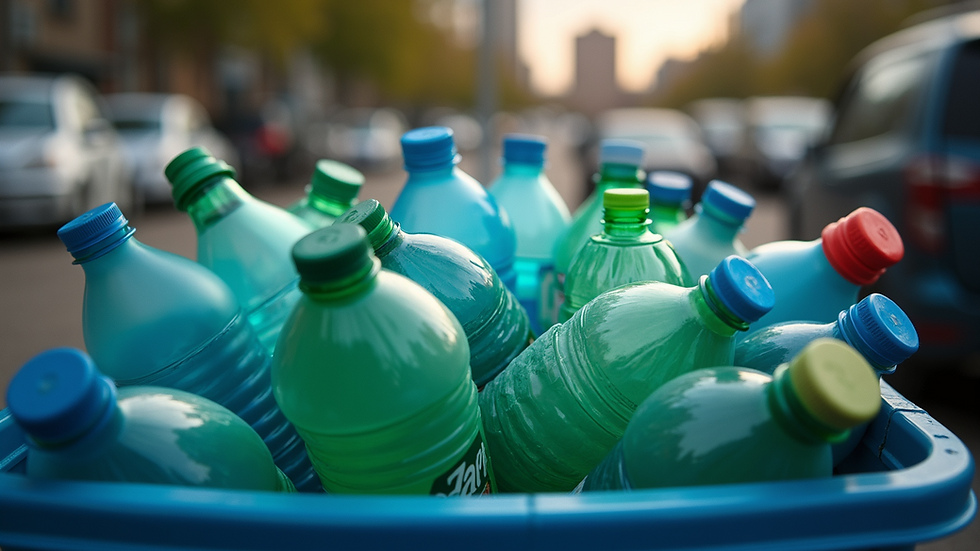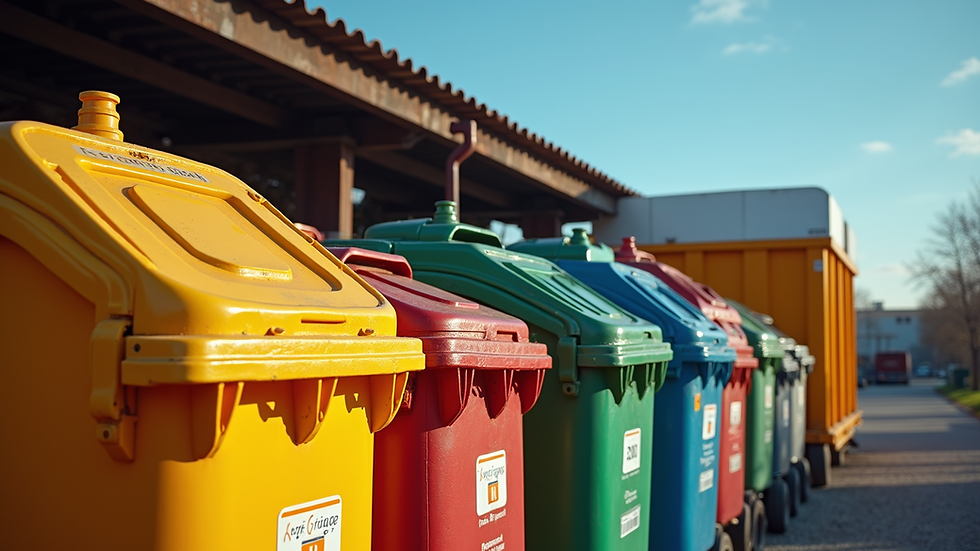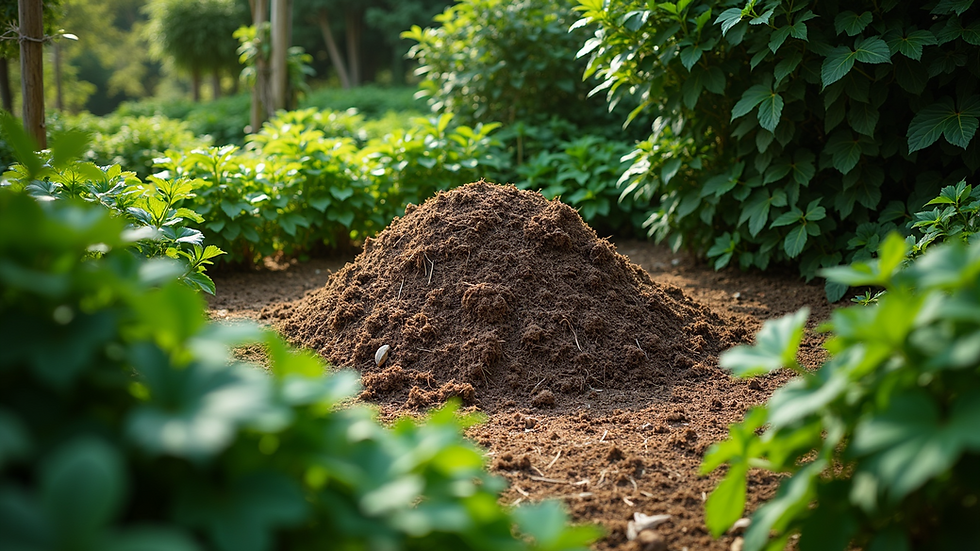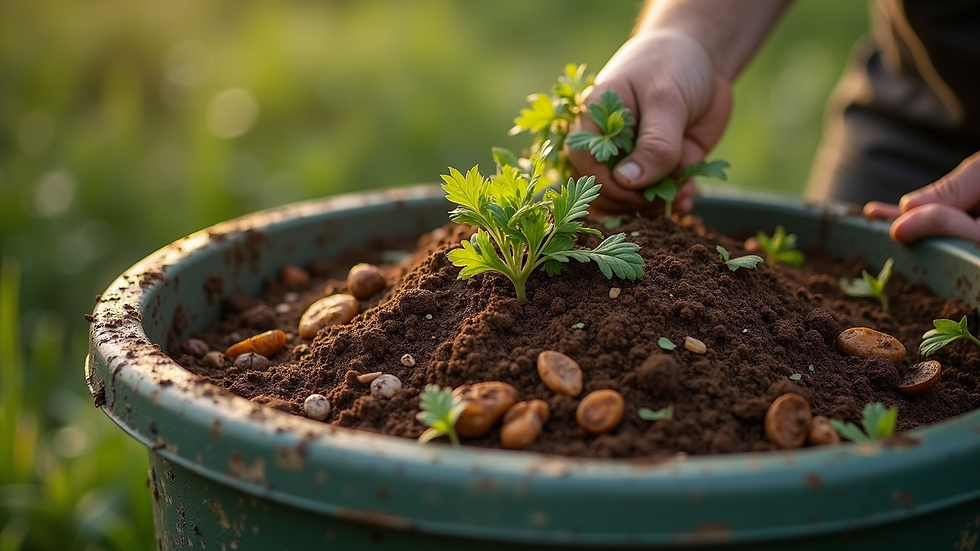Practical Tips for Eco-Friendly Waste Disposal
- Neil Yates
- Jun 17, 2025
- 4 min read
Every day, we generate waste. From packaging materials to food scraps, it can easily accumulate and overwhelm our environment. Eco-friendly waste disposal is essential for reducing our environmental footprint. By adopting simple and practical habits, we can contribute to a healthier planet. Let’s explore some effective strategies for eco-friendly waste disposal.
Understanding Eco-Friendly Disposal
Eco-friendly disposal means managing waste in a way that is safe for the environment. It involves minimizing waste, reusing materials, recycling whenever possible, and appropriately disposing of items that cannot be recycled. Implementing eco-friendly practices reduces landfill waste, conserves natural resources, and reduces pollution.
For example, did you know about 75% of the waste we produce is recyclable? However, only about 34% of that waste gets recycled. By understanding eco-friendly disposal methods, we can bridge this gap more effectively.

Practical Tips for Eco-Friendly Waste Disposal
Now, let’s delve into some practical tips on how to dispose of waste in an eco-friendly manner:
1. Reduce, Reuse, Recycle
The "Three Rs" of waste management should be your guiding principle. Reducing waste means cutting down on what you consume. Reusing involves finding new ways to use old items rather than discarding them. Recycling enables materials to be processed and made into new products.
Tip: Carry a reusable water bottle and shopping bag. This small change can significantly reduce plastic waste.
Statistics: According to the World Economic Forum, only 9% of plastic is actually recycled, and if we reduce and reuse, we can lower this figure drastically.

2. Composting Organic Waste
Composting is a fantastic way to recycle organic waste. By creating compost from kitchen scraps and yard waste, you can reduce landfill contributions while providing nutrient-rich soil for your garden.
Tip: Set up a compost bin in your backyard or use a compact composting system for apartments.
Did you know?: About 30% of the waste that ends up in landfills is organic material that could have been composted.
3. Educate Yourself on Local Waste Management Policies
Every community has its policies and practices for waste management. Understanding your local regulations can help you make better decisions about waste disposal.
Tip: Contact your local waste management facility to learn about recycling programs and hazardous waste disposal options.
Example: Many cities have curbside pickup for recyclable materials, and programs for safe disposal of items like batteries and electronics.
4. Use Eco-Friendly Products
Choosing eco-friendly and biodegradable products can significantly impact your waste footprint. Look for items that are labeled as biodegradable, compostable, or recyclable.
Tip: Choose products packaged in glass or cardboard instead of plastic.
Example: Brands that offer cleaning supplies that are safe for the environment.

5. Encourage Community Engagement
Getting involved in community efforts can amplify your eco-friendly practices. Many neighborhoods organize clean-up days, recycling drives, and educational events.
Tip: Join local environmental groups or volunteer for community clean-up activities.
Impact: When we work together, we can educate others about eco-friendly disposal and sustainable practices, creating more positive change.
6. Embrace Minimalism
Adopting a minimalist lifestyle can help reduce waste significantly. When you prioritize quality over quantity, you often find yourself purchasing fewer items. This leads to less waste generated over time.
Tip: Time your shopping sprees. Challenge yourself to shop less frequently and only buy what you truly need.
Statistics: Minimalism can reportedly decrease household waste by up to 50% when implemented consistently.
7. Invest in Quality Products
Quality investment can minimize the need for frequent replacements, thus reducing waste. For example, choose durable clothing, kitchenware, and home goods designed to last.
Tip: Invest in items that come with warranties or are built specifically for longevity.
Example: Opt for stainless steel kitchen utensils over disposable plastic ones.
8. Advocate for Better Policies
Advocating for stronger environmental policies in your community can help create a larger impact. Speak up about the need for more recycling programs or waste reduction initiatives.
Tip: Attend town hall meetings or engage with local representatives about waste management challenges.
Impact: Advocacy leads to meaningful changes that can shape community policies towards more sustainable waste management practices.

9. Share Knowledge and Build Awareness
Finally, sharing your knowledge of eco-friendly disposal methods can inspire others to follow suit. Start conversations with friends and family about the importance of responsible waste management.
Tip: Host workshops or informal get-togethers to discuss eco-friendly practices.
Impact: The more people are informed, the more likely they are to take action for a cleaner, healthier planet.
Moving Forward with Eco-Friendly Practices
By following these practical tips for eco-friendly waste disposal, you contribute to a healthier environment and develop more sustainable habits. Remember, sustainable waste management is not just a personal responsibility; it’s a collective effort. Every action counts, and together, we can make a difference.
While the scale of our individual contributions may seem small, they collectively translate into significant benefits for our planet. Let’s take these steps towards a more sustainable future, and inspire those around us to do the same.
The planet is counting on us; let’s rise to the challenge!




Comments